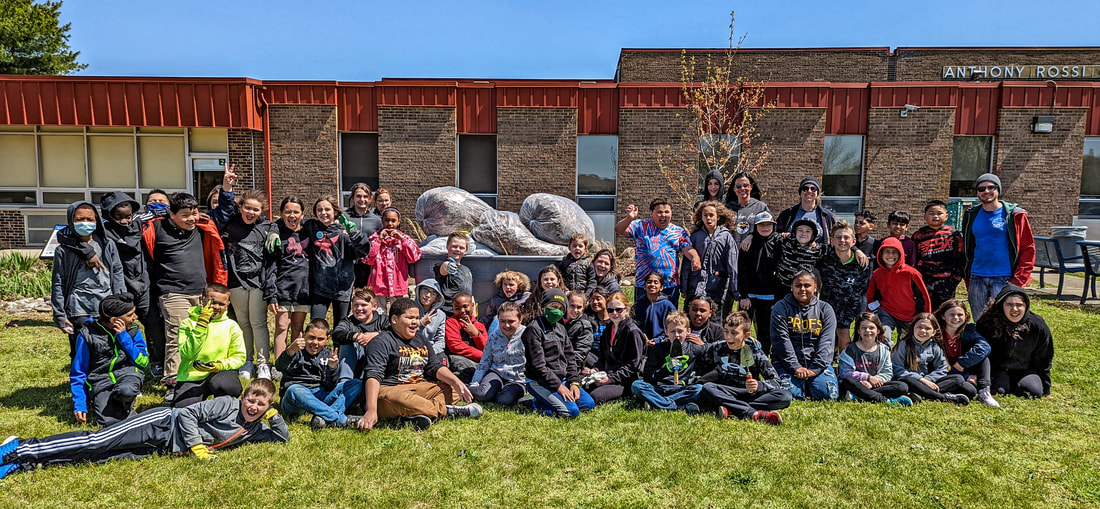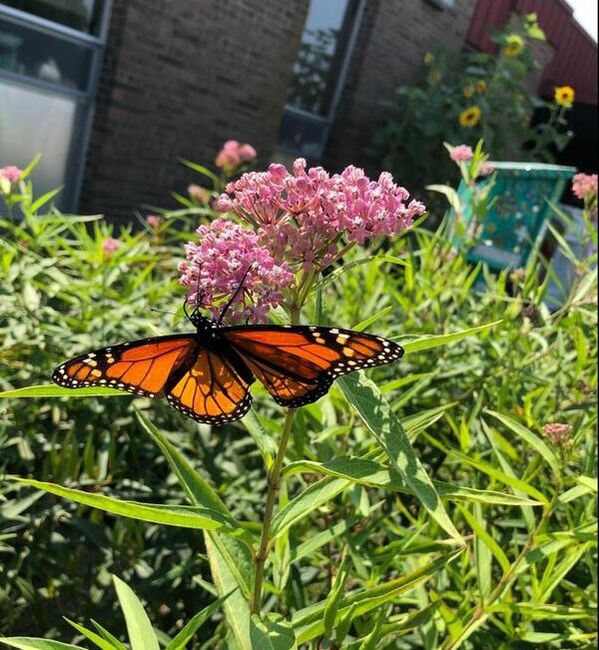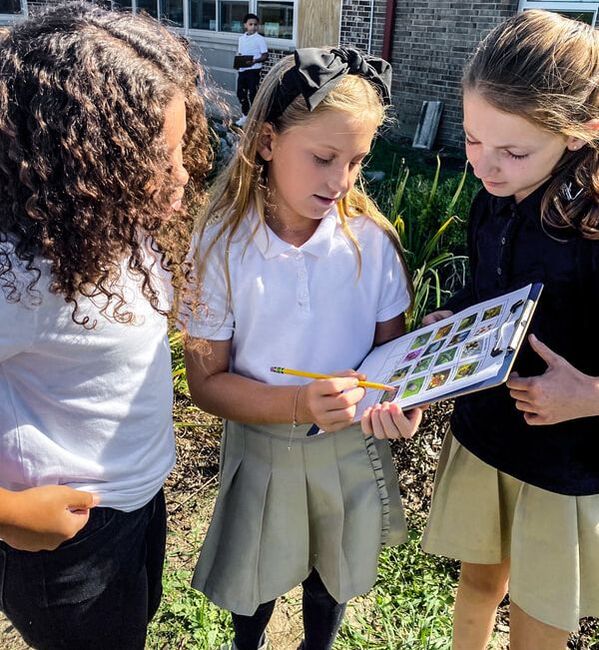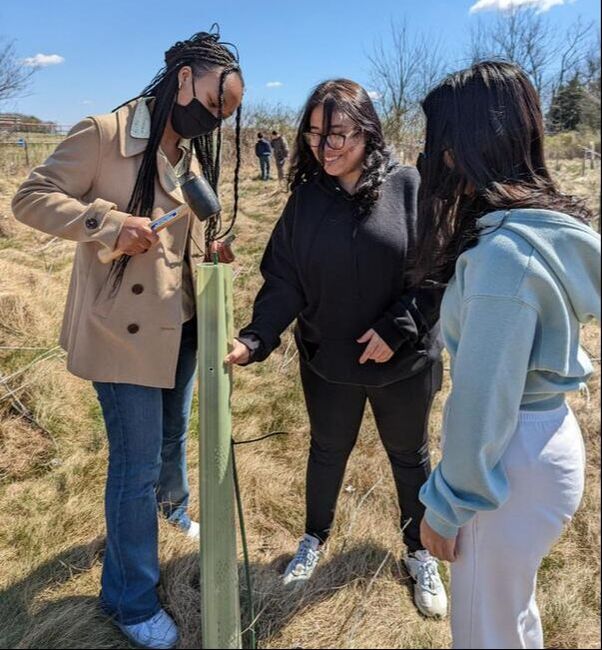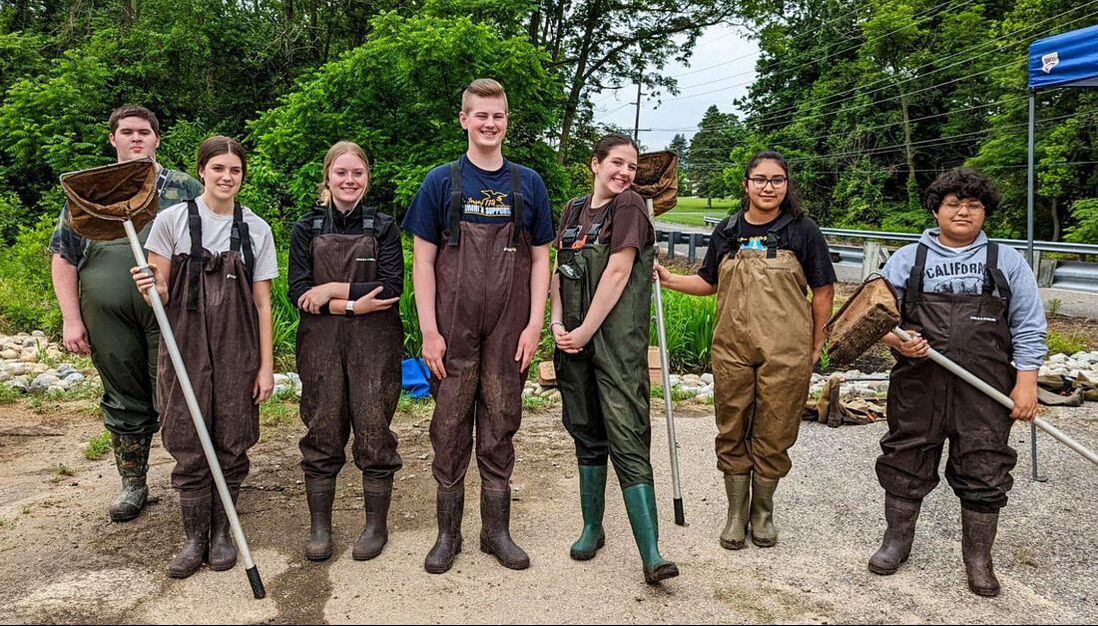Become a “Stream Saver” with the American Littoral Society!
Want to make your school a greener place and help keep local waters clean? Become a Stream Saver with the American Littoral Society! Participate in hands-on lessons and learn how to use nature-based solutions to address stormwater pollution on your school grounds and in your community. If you would like someone from the Littoral Society to contact you about the program, please provide us with your contact information through the Stream Savers Interest Form.
Want to make your school a greener place and help keep local waters clean? Become a Stream Saver with the American Littoral Society! Participate in hands-on lessons and learn how to use nature-based solutions to address stormwater pollution on your school grounds and in your community. If you would like someone from the Littoral Society to contact you about the program, please provide us with your contact information through the Stream Savers Interest Form.
4th grade “Stream Savers” at Anthony Rossi Elementary in Vineland, NJ
What We Do
We use nature-based solutions (NBS) at schools and in the community to protect against flooding, conserve water, and promote climate change resilience. These nature-inspired designs capture stormwater to reduce pollution and resupply groundwater while adding green space and creating habitat for wildlife.
We use nature-based solutions (NBS) at schools and in the community to protect against flooding, conserve water, and promote climate change resilience. These nature-inspired designs capture stormwater to reduce pollution and resupply groundwater while adding green space and creating habitat for wildlife.
A Living Laboratory for Learning
Nature-based solutions (NBS) projects can be a living laboratory for exploration, observation, and investigation. An outdoor classroom where students and teachers can try new things, learn new skills, and experience nature first hand. These projects provide the added benefits of creating wildlife habitat and reducing pollution, while building opportunities for community engagement and beautification.
Nature-based solutions (NBS) projects can be a living laboratory for exploration, observation, and investigation. An outdoor classroom where students and teachers can try new things, learn new skills, and experience nature first hand. These projects provide the added benefits of creating wildlife habitat and reducing pollution, while building opportunities for community engagement and beautification.
Outreach Programs
Engage the senses and discover nature outside your door with interactive, STEM-based programs for K-12 students and groups.
Programs are delivered by American Littoral Society Educators and aligned to the Next Generation Science Standards and NJ Climate Change Education Standards.
Customized programs and specialty topics available upon request.
Engage the senses and discover nature outside your door with interactive, STEM-based programs for K-12 students and groups.
Programs are delivered by American Littoral Society Educators and aligned to the Next Generation Science Standards and NJ Climate Change Education Standards.
Customized programs and specialty topics available upon request.
What Lives in a Rain Garden?
Grades K-4
Grades K-4
Peek under a leaf, dig in the dirt, listen for the buzzing bees, and you’ll find that a rain garden is full of life! Rain gardens capture rainwater as it falls from the sky, helping water soak into the ground for plants, animals, and people who need it. Rain gardens also make great habitats, providing food, water, and shelter that living things need to survive. Explore the plants and animals that can live in a rain garden and learn how a rain garden at your school can help protect local streams from pollution.
Program takes place outdoors. An onsite rain garden is NOT required.
Program takes place outdoors. An onsite rain garden is NOT required.
Stream Study - Offered Fall & Spring
GRADES 3-12
GRADES 3-12
What lives in a stream? Discover the tiny aquatic insects called “benthic macro-invertebrates” that live between the slippery rocks or under submerged leaves and logs. Study the life cycles of dragonflies, damselflies, and more to learn how these creatures depend upon fresh, clean water. Conduct a “stream study” by analyzing and comparing stream samples to determine stream health and develop a plan to protect local waters from pollution.
Monarchs and Macroinvertebrates - Offered Fall - Spring
SERIES PROGRAM FOR GRADES 3 & UP
SERIES PROGRAM FOR GRADES 3 & UP
Investigate the amazing life cycles of invertebrates from monarch butterflies to freshwater macroinvertebrates. In this 4 part series program, students will explore the importance of pollinators and other insects in the ecosystem, discuss the impacts of pollution and climate change on these creatures and study the habitats they rely on.
Includes 3 school visits and 1 field trip to Barrett’s Run Nature Preserve
Includes 3 school visits and 1 field trip to Barrett’s Run Nature Preserve
Watersheds: Where Does the Water Flow?
Grades 5-8
Grades 5-8
Everything in a watershed is connected. Explore how rainwater flows from your school, through your town, to streams, rivers and eventually the ocean! Conduct an investigation to see how pollution travels through the watershed and into the groundwater below. Discuss technology and innovations including nature-based solutions that are being used to control stormwater pollution and protect against flooding. Then develop a plan to keep your local stream clean!
Nature-Based Solutions: Innovations and Future Thinking
Grades 9 - 12
Grades 9 - 12
Nature-based solutions (NBS) mimic nature to capture and reuse rainwater where it falls. Explore the benefits of NBS for flood protection, pollution prevention, water conservation, and habitat creation. Discuss innovations in science, technology, and engineering like NBS that will create a resilient future in the face of climate change. Learn about career opportunities related to NBS and help identify a site at your school that could be a candidate for its own nature-based solutions project.
Field Trip Programs
Explore habitats from land to sea with exciting field trips to pollinator habitats, local streams, and the Delaware Bay.
Explore habitats from land to sea with exciting field trips to pollinator habitats, local streams, and the Delaware Bay.
Habitat Investigations Field Trip
Barretts Run Nature Preserve - Hopewell, NJ
Barretts Run Nature Preserve - Hopewell, NJ
Meet us at the Barretts Run Nature Preserve for a habitat investigation! Explore a pollinator meadow, meet macroinvertebrates that live in a stream, and practice your bird watching skills. Look for evidence of the food, water, and shelter that make this a suitable habitat for these creatures and more! Learn how the American Littoral Society helped to restore this area from farmland to the productive ecosystem it is now.
A Day at the Bay Field Trip
Thompsons Beach, Delaware Bay -
Maurice River Twp, NJ
Thompsons Beach, Delaware Bay -
Maurice River Twp, NJ
Explore unique ecosystems along the Delaware Bay from the salt marsh to the bay beaches.
Get your feet wet and meet aquatic creatures up close. Use scientific instruments to test water quality and learn how climate change is altering this system. Discuss the connections between land and sea and the impact of human actions upstream.
Get your feet wet and meet aquatic creatures up close. Use scientific instruments to test water quality and learn how climate change is altering this system. Discuss the connections between land and sea and the impact of human actions upstream.
Program Pricing
Traveling Classroom Programs:
$300 for the first session (Sessions are designed for 1 class of students)
$200 for additional same-site, same-day program
Travel fee may apply
Field Trips:
$15/student ($300 minimum)
max 80 students per day
Needs based scholarships and those that prioritize BIPOC applicants may be available.
Traveling Classroom Programs:
$300 for the first session (Sessions are designed for 1 class of students)
$200 for additional same-site, same-day program
Travel fee may apply
Field Trips:
$15/student ($300 minimum)
max 80 students per day
Needs based scholarships and those that prioritize BIPOC applicants may be available.
If you would like someone from the Littoral Society to contact you about the Stream Savers Program, please provide us with your contact information through the Stream Savers Interest Form.

